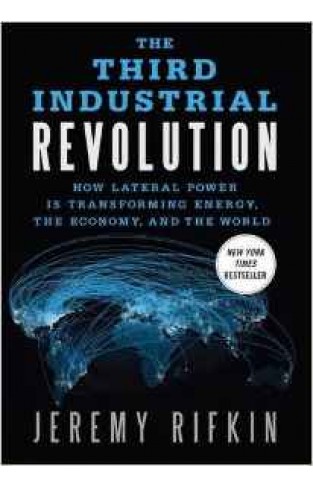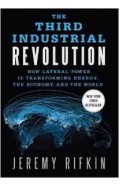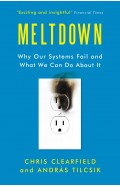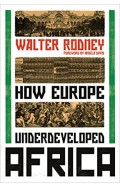- Home
- Business & Management
- The Third Industrial Revolution How Lateral Power Is Transforming Energy the Economy and the World
The Third Industrial Revolution How Lateral Power Is Transforming Energy the Economy and the World
By: Jeremy Rifkin
-
Rs 3,112.50
- Rs 4,150.00
- 25%
You save Rs 1,037.50.
Due to constant currency fluctuation, prices are subject to change with or without notice.
| Book | |
| What's in the Box? | 1 x The Third Industrial Revolution How Lateral Power Is Transforming Energy the Economy and the World |
The European Dream: How Europes Vision of the Future is Quietly Eclipsing the American Dream
By: Jeremy Rifkin
Rs 535.50 Rs 1,190.00 Ex Tax :Rs 535.50
The Third Industrial Revolution How Lateral Power Is Transforming Energy the Economy and the World
By: Jeremy Rifkin
Rs 3,112.50 Rs 4,150.00 Ex Tax :Rs 3,112.50
Zubin Mehta: A Musical Journey (An Authorized Biography)
By: VOID - Bakhtiar K. Dadabhoy
Rs 472.50 Rs 1,050.00 Ex Tax :Rs 472.50
Meltdown : Why Our Systems Fail and What We Can Do About It
By: Chris Clearfield
Rs 1,621.75 Rs 2,495.00 Ex Tax :Rs 1,621.75
Flying Blind - The 737 MAX Tragedy and the Fall of Boeing
By: Peter Robison
Rs 1,751.75 Rs 2,695.00 Ex Tax :Rs 1,751.75
Myths Illusions and Peace: Finding a New Direction for America in the Middle East
By: Dennis Ross
Rs 985.50 Rs 1,095.00 Ex Tax :Rs 985.50
Meltdown : Why Our Systems Fail and What We Can Do About It
By: Chris Clearfield
Rs 1,621.75 Rs 2,495.00 Ex Tax :Rs 1,621.75
Flying Blind - The 737 MAX Tragedy and the Fall of Boeing
By: Peter Robison
Rs 1,751.75 Rs 2,695.00 Ex Tax :Rs 1,751.75
No recently viewed books available at the moment.
Zubin Mehta: A Musical Journey (An Authorized Biography)
By: VOID - Bakhtiar K. Dadabhoy
Rs 472.50 Rs 1,050.00 Ex Tax :Rs 472.50
The European Dream: How Europes Vision of the Future is Quietly Eclipsing the American Dream
By: Jeremy Rifkin
Rs 535.50 Rs 1,190.00 Ex Tax :Rs 535.50
The Third Industrial Revolution How Lateral Power Is Transforming Energy the Economy and the World
By: Jeremy Rifkin
Rs 3,112.50 Rs 4,150.00 Ex Tax :Rs 3,112.50
Meltdown : Why Our Systems Fail and What We Can Do About It
By: Chris Clearfield
Rs 1,621.75 Rs 2,495.00 Ex Tax :Rs 1,621.75
Flying Blind - The 737 MAX Tragedy and the Fall of Boeing
By: Peter Robison
Rs 1,751.75 Rs 2,695.00 Ex Tax :Rs 1,751.75















-120x187.jpg?q6)



















